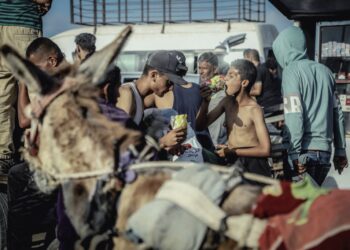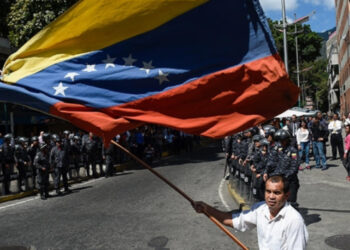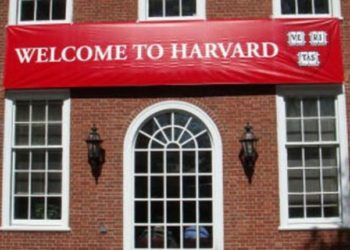PAN AMERICAN HIGHWAY, GUATEMALA — The child descendants of the great Mayan Empire line the edges of the world’s longest highway, hoping drivers will stop and gift them the Christmas presents their families cannot afford.
They are vulnerable to traffickers because their parents are absent, working at menial jobs, scraping out a miserable existence hawking Chinese-knockoff textiles, small boxes of Chiclets, and straw hats to the tourists here in Guatemala, a country that the US State Department advises its citizens to reconsider travel “due to crime.”
“Some areas of Guatemala have problems with gangs, robbery, carjacking, drug trafficking and violence,” the travel advisory reads. “Local law enforcement may not always respond well to serious crimes, leading to low arrest and conviction rates. While tourists are not usually targeted, they can still be victims of opportunistic crimes.”
Legacy of Political Corruption and Violence
At first glance, crime does not seem as evident as poverty, heartbreaking misery created and fostered in no small part by political corruption, violent drug cartels, and our own foreign policy in Central America, a policy with deep roots in the anti-Communist fervor of the Reagan era and now perpetuated by the current wave of anti-immigrant and Great Replacement Theory propaganda.
During Ronald Reagan’s presidency, the US maintained the largest military base in Central America in Nicaragua to combat that country’s eventual successful revolution.
Despite the State Department’s cautions, I “braved” Guatemala and Honduras (“Violent gang activity, such as extortion, violent street crime, rape, narcotics, and human trafficking, is widespread.”) to learn about the Mayan, to climb the astronomically-oriented temples at Copan, Iximche, and Tikal to try to understand marvel how such an advanced culture existed long before anything that could be called “modern” existed.
That was the idea, but what I witnessed in the villages and cities was in many ways more relevant as the United States readies its immense customs and law enforcement agencies to carry out one of its biggest deportations of migrants.
Many of those deportees will end up in Central American nations such as Honduras and Guatemala, countries where jobs and opportunities are scarce and education is even scarcer.
Those ancient nation states of 10 million Mayans that spoke more than 30 distinct languages in southern Mexico and Central America waned around the ninth century.
Today, those customs and beliefs still endure despite the constraints of the omnipresent Catholic Church that keeps its adherents praying, pregnant, and poor, and the corruption of narco states that only care about payoffs, profits, and power in their violent rush to feed the First World’s insatiable cravings for cocaine.

The Drug Trade’s Impact
The drug trade permeates all levels of Honduras and Guatemala, from the MS-13 and Barrio 18 street gangs in San Pedro Sula and Guatemala City to the highest echelons of government.
In June of last year, former president of Honduras, Juan Orlando Hernandez, was sentenced to 45 years in a US prison for distributing 400 tons of cocaine or 4.5 billion single doses of the white powder.
While president, according to Attorney General Merrick Garland, Hernandez ran “one of the largest and most violent drug trafficking conspiracies in the world, and the people of Honduras and the United States bore the consequences.”
Hernandez’s brother was sentenced in 2019 to life in prison for his role in drug smuggling, too. Awaiting their sentencings, according to the US Department of Justice, are Juan Carlos Bonilla Valladares, aka El Tigre, “the former chief of the Honduran National Police, and Mauricio Hernández Pineda, a former member of the Honduran National Police and Hernández’s cousin.”
Poverty and Struggles for Change
While President Hernandez was enriching his life and using violence to protect his drug fiefdom, the Honduran people continued down the rabbit hole of poverty. In 2022, its share of population living on less than 3.20 US dollars per day was 26.4 percent, by far the highest share in Latin America.
To alter a fate of poverty is nearly impossible. Banks regularly charge some of the highest interest rates in the world on loans. Millions do not have access to running water. Resistance from the Catholic Church to birth control programs from groups like Doctors Without Borders is strong. Girls get pregnant at an early age. More than 200,000 girls between the ages of 10 and 19 became pregnant in 2019 and 2020. Five to eight children is not uncommon.
That misery index heavily affects the indigenous peoples of Honduras and Guatemala. Mayans in particular have been the targets of genocidal mass killings. In Jonathan Blitzer’s book Everyone Who Is Gone Is Here, he cites the years of 1981-1983, during Guatemala’s civil war, as the worst of what became known as “La Violencia.”
Blitzer writes that, General Romeo Lucas Garcia, who was president from 1978 to 1982, “adopted a policy that one general called ‘blindness and madness,’ in which the military [trained and backed by the US] killed, tortured, and raped as many Maya as it could to instill terror and diminish support for the guerrillas…hundreds of villages were destroyed, and two hundred thousand people were killed and disappeared. More than a million Indigenous residents were displaced, with tens of thousands fleeing to Mexico… the military burned down entire forests to make whole swaths of the highlands uninhabitable.”
The 36-year civil war in Guatemala ended in 1996, with more than 200,000 civilians killed. Eighty-three percent of those murdered civilians were Maya.

Deportations and Economic Fallout
With Trump’s 2.0 administration set to enact a massive deportation policy, countries such as Guatemala and Honduras will feel the impact of the influx of deportees through the loss of remittances and a lack of jobs and social services for their returning citizens.
Around 20 percent of Guatemala’s GDP ($21 billion) and 30 percent of Honduras’ GDP (just under $10 billion) came from remittances sent from the United States in 2024.
Guatemala has expressed its willingness to cooperate. Currently, according to Reuters, Guatemala receives 14 weekly deportation flights from the US. “These are people who have worked in construction, in the service industry, in various sectors, and many speak English. We want to harness that,” said one Guatemalan official. In 2024, a record 61,680 Guatemalans were deported on 508 planes.
Honduras is not so keen on the Trump plan and has threatened to cease cooperating with the US military, specifically targeting its Soto Cano Air Base.
On New Year’s Day, Honduran President Xiomara Castro said, “Faced with a hostile attitude of mass expulsion of our brothers, we would have to consider a change in our policies of cooperation with the United States, especially in the military arena, where, without paying a cent for decades, they maintain military bases in our territory, which in this case would lose all reason to exist in Honduras.” She called Trump’s deportation plan as an “unnecessary reprisals against our migrants.”
Some two million Hondurans currently live in the United States, with an estimated a half million unauthorized. Honduran Deputy Foreign Minister Tony García estimates that 250,000 Hondurans will be deported this year.
Road to Survival
Aside from the children along the garbage-strewn shoulders on the Pan American Highway, I also saw families on the move. Were they headed to El Norte? Had they survived the Darian Gap, the dangerous gap in the 19,000-mile road? What had they witnessed in their perilous journey from failed nations like Venezuela, or the corrupt countries of Central America?
At the Guatemalan-Honduran border lorries were backed up for several miles awaiting inspection as they also ventured north. They might wait for a week to get through the border. Vendors selling tortillas and drinks shuffled by holding their wares on their heads and tapping on the drivers’ windows.
What and/or who were in those trucks? Whose palms were greased with bribes, and how much was required to evade the customs officials? What is the going price for a better way of life?
On the opposite side of the highway, the lanes were clear. At least for the moment, no one was heading south.
Disclaimer: The views and opinions expressed here are those of the author and do not necessarily reflect the editorial position of The Globe Post.






















